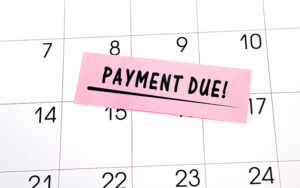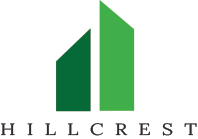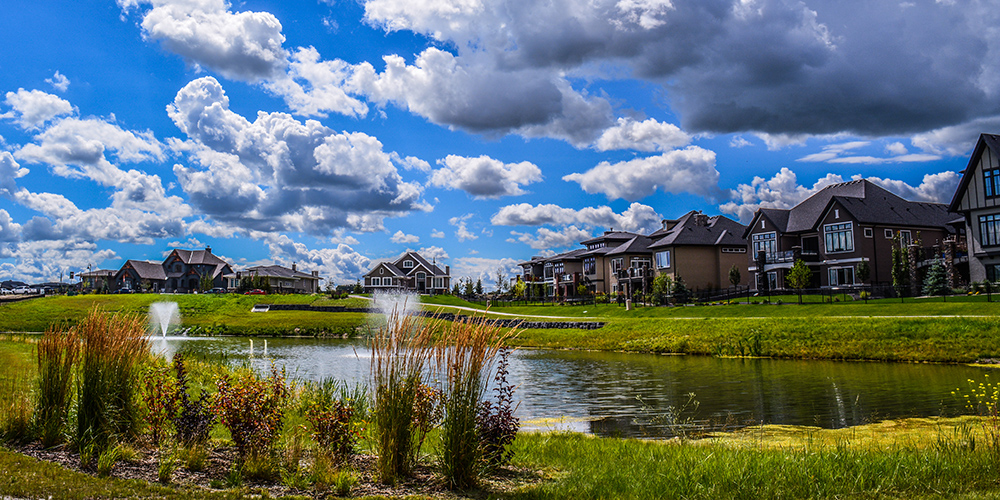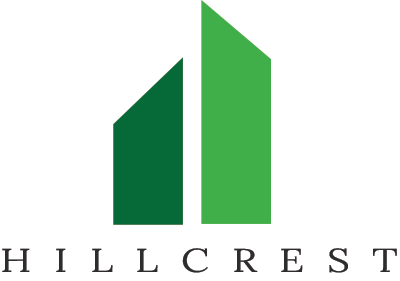Living in a homeowners association means paying regular HOA fees. These fees play a vital role in the success and operation of an HOA. Still, many homeowners don’t know how these fees function and deem them unnecessary. In truth, no HOA community can survive without these fees.
Define HOA Fees: What Are They?
Homeowners association fees are fees that members of an HOA pay to the association. Also known as HOA dues, homeowners agree to pay these fees upon purchase of their homes within the community. In short, it is a financial obligation they have to the association.
Fees are paid monthly, quarterly, or yearly. Because the HOA’s financial needs can change over time, fees don’t typically stay stagnant forever. They tend to increase, with many factors influencing the dollar amount. These factors include inflation, cost of goods, amenity types, and even delinquency rates.
Can HOAs Charge Fees?
In general, homeowners associations can charge HOA fees. The authority to do so ultimately depends on state laws and the governing documents of the HOA. If state laws don’t give HOAs the inherent power to collect fees, the CC&Rs and bylaws typically do.
What do HOA Fees Cover?
Homeowners associations require various services to continue operating. Since the HOA is responsible for maintenance and management, it must pay for the expenses associated with these duties. Common area maintenance, pool management, security, and more all cost money.
The specific expenses HOA fees cover will depend on the community. Not every community has the same needs and expenses. That said, these fees typically pay for the following:
- Building maintenance
- Common area maintenance
- Landscaping
- Amenity maintenance and management
- Security services
- Pest control in common areas
- Utilities
- Snow removal and street cleaning
- Trash and recycling services
- Insurance for the HOA
- Road and sidewalk maintenance
- Professional and legal fees
- Social events
- Newsletters and other communication channels
- Administrative expenses
- Reserve fund contributions
Who Pays HOA Fees?
All homeowners living in an HOA-managed community must pay regular dues or fees. This includes members of the HOA board, who are responsible for managing the association.
Homeowners agree to fulfill their obligations to the association, including the obligation to pay fees, upon purchasing their homes. When a homeowner sells their home to a buyer, that buyer becomes a member of the HOA and must also begin paying dues.
Although board members are community leaders, they receive no special treatment, compensation, or discount. They must pay HOA fees just like everyone else.
HOA Fees vs HOA Special Assessment
A homeowner might encounter two types of assessments: regular assessments (HOA fees) and special assessments. HOA fees are fees that homeowners pay to the association regularly. The HOA uses these fees to pay for operating expenses.
The HOA board calculates regular fees by projecting the expenses for the coming year. Sometimes, these projections can be inaccurate, or many owners might default on their dues. This leads to a budget deficit, which can trigger a special assessment.
A special assessment is a one-time fee the HOA charges to cover additional or unanticipated costs. The HOA may also charge this if it faces a sizable budget deficit. Special assessments should be rare, and if an HOA levies this assessment often, it can be a sign of financial strife or an ineffective board.
Are There HOA Fees for Condos?
Condo associations function much like homeowners associations. That means there are also HOA fees for a condo association. Unit owners must pay regular payments to cover the various expenses of managing and operating the condo community.
Condo fees tend to be higher than HOA fees. This is due to the nature of condo associations. These communities typically have more shared elements to maintain, resulting in higher fees.
How Much are Average HOA Fees?
It is important to know that HOA dues are not the same for every community. Some associations charge higher dues because they have more complex amenities and needs. They might also reside in richer areas. Other associations charge lower fees because they don’t have as many amenities or common areas to manage.
In the United States, HOA dues average about $200 to $300 a month. That said, some communities can charge fees as high as $1,000 a month.
How Much are HOA Fees in Chicago?
Chicago is a bustling city with many planned neighborhoods. Typical HOA fees in this city can range from $300 to $400 a month. Condo fees, which tend to be more expensive, can range from $300 to $600 a month.
How to Pay HOA Fees
Homeowners should ask their HOA boards or managers for information on payment methods. Not all communities offer the same methods to settle their dues. Some offer a wide range of options, including electronic payments, while others have stuck to traditional methods, such as mailing checks.
Given modern technology, it is a good idea for HOAs to make use of electronic payment methods. Offering several options for payment makes it more convenient for homeowners to settle their fees. This reduces the risk of delinquency, which can have a negative impact on the association’s long-term financial stability.
What Happens When You Don’t Pay HOA Fees?
There are a few possible penalties homeowners may face when they stop paying their dues. Specific penalties can vary depending on what state laws and governing documents allow. That said, they generally include the following:
 1. Late Fees
1. Late Fees
Many HOAs charge a late fee or interest in addition to the principal amount due. This inflates the debt the homeowner has to the association. Over time, these additional charges can accumulate, making it more difficult for homeowners to settle their unpaid fees.
2. Suspension of Privileges
Some associations have the power to revoke the homeowner’s privileges or rights if their dues remain unpaid. This means the homeowner won’t have access to amenities or even have their voting rights suspended. Of course, this is only on a temporary basis. Once they settle their outstanding dues, they gain all of these privileges back.
3. Legal Action
Homeowners associations may also take legal action against a delinquent owner, which can result in a court order that the owner pay their dues.
4. Liens
Many states allow HOAs to place a lien on the property of a delinquent homeowner. Liens make it harder for homeowners to sell their homes or refinance their mortgage. If a homeowner wishes to sell their home, the HOA board will provide the buyer with a statement of the lien and any amount owed.
 5. Foreclosure
5. Foreclosure
Believe it or not, many HOAs have the ability to foreclose on a home following a lien. That means homeowners stand to lose their investment if they fail to pay their dues to the association.
A Worthwhile Investment
While HOA fees may seem like an added charge, they serve an essential purpose. These fees pay for the community’s expenses and services, which contribute to increased curb appeal and the protection of property values. Ultimately, homeowners will also reap the benefits of paying these fees.
Hillcrest offers HOA management services to communities in Chicago. Call us today at 630-627-3303 or contact us online to request a proposal!
RELATED ARTICLES:
- Your Complete Guide To HOA Special Assessments
- Who Pays HOA Renter Or Owner? HOA Dues Payment Rules For Renters
- HOA Accounting For Board Members




